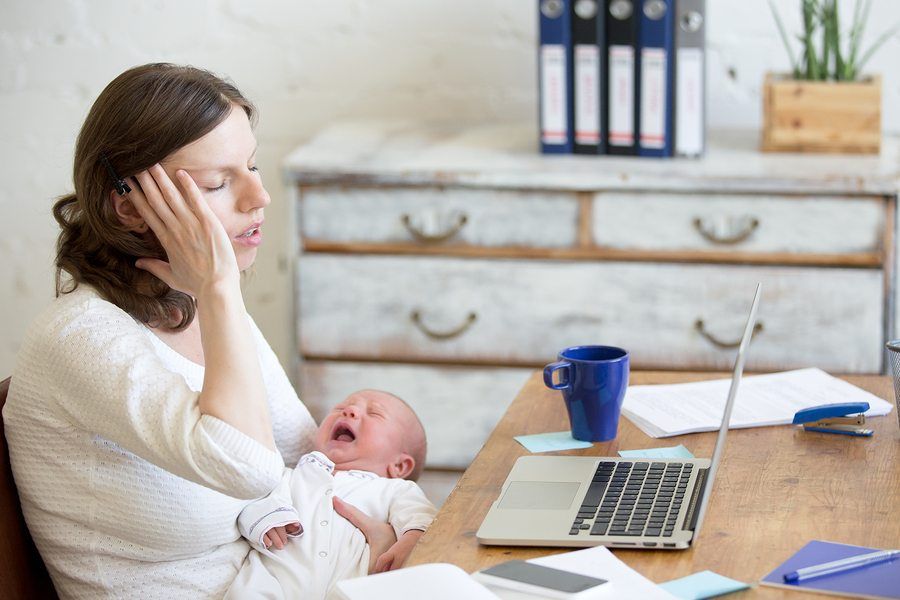Postpartum depression (PPD) is a serious condition and common post-delivery complication. Even healthy mothers with healthy babies can feel extraordinary sadness and feelings of shame and guilt. And although the majority of women report knowing what PPD is, very few actually get diagnosed and treated for it.
PPD is typically characterized by a consistently low mood, poor appetite, poor sleep, irritability, feelings of guilt and lack of energy, all occurring after delivery. Quite often, it can interfere in one’s ability to bond with her child. In some cases, PPD can result in feelings of harming oneself or others. PPD can occur anytime after delivery but typically manifests between one and six months postpartum.
PPD is different than postpartum blues (or the “baby blues”) in many ways. Postpartum blues doesn’t last as long and is not as severe. It’s typically experienced as insomnia, irritability and some mood disturbances. Up to 80% of women postpartum can experience postpartum blues.
Some women, such as those who feel unsupported, had mixed feelings about being pregnant, had pre-existing mental/medical/addiction issues, and had complicated deliveries or pregnancies, are at a higher risk of getting PPD. However, none of us is immune from it.
The reality is that any woman, no matter who she is, can experience PPD. In fact, some of the mothers who had felt the happiest about their pregnancies and had always dreamt of being mothers are the ones most impacted by PPD. What I have found is that the guilt and shame around PPD is typically the worst when there is a bigger disparity between how one actually feels about motherhood versus how she thought she would feel around motherhood.
PPD does not mean that a woman is a bad mother or that she has failed in any way. Conversely, it is a medical condition that is highly treatable. Treatment is best if it occurs sooner, instead of waiting and allowing the PPD to worsen in severity. Although some people do need medications to help them through, others can manage through therapy alone. PPD can feel extraordinarily isolating, but it’s important for all new moms to remember that support is essential to any healthy start to motherhood. Partnering with your doctor and therapist can be the first step back to wellness and to enjoying those first moments of motherhood.
Photo credit: Bigstockphoto.com
DISCLAIMER: All information and content in this post are for informational purposes only. The author does not provide any medical advice on the site, and the information should not be so construed or used. Nothing contained in the site is intended to create a physician-patient relationship, to replace the services of a licensed, trained physician or health professional or to be a substitute for medical advice of a physician or trained health professional licensed in your state. The information expressed here are the views of Dr. Iyer only and are not the opinions of any hospitals or academic facilities with which Dr. Iyer has an affiliation. You should consult a physician licensed in your state in all matters relating to your health.




